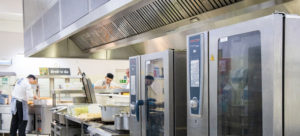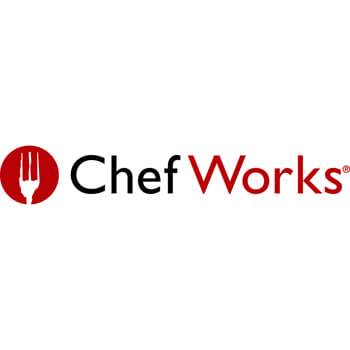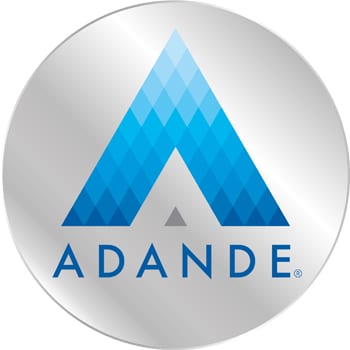The Chefs’ Forum Education Catering Seminar – Calling All School, College & University Chefs!

Why the Education Seminar is lifting the lid on education catering with hot topics for discussion and a focus on how school, college and university kitchens could look in the future.
 Education is one of the toughest nuts to crack when it comes to catering provision. In such a challenging role it is almost impossible to get everything right, and it is set to become even more challenging. Year on year, allergens and complex diets complicate menu development, and with Natasha’s Law coming into effect in October this year, education caterers will be under more pressure to keep all food labelling compliant. With so much to consider, in addition to a vast range of dietary needs and preferences, there is much work to be done.
Education is one of the toughest nuts to crack when it comes to catering provision. In such a challenging role it is almost impossible to get everything right, and it is set to become even more challenging. Year on year, allergens and complex diets complicate menu development, and with Natasha’s Law coming into effect in October this year, education caterers will be under more pressure to keep all food labelling compliant. With so much to consider, in addition to a vast range of dietary needs and preferences, there is much work to be done.
Education catering, to date, could be likened to that of forcing a square peg into a round hole. Forcing a food regime on children does not work. As Jamie Oliver discovered, even though his campaign to revolutionise school meals was worthy in the extreme, he soon realised that what children wanted to eat, and why, differed considerably to the way he saw it.
 Feeding children is hard, full stop! It is not like working in a restaurant where the chef aims to create a balanced menu. A school caterer, for example, caters for large numbers, deploying a small team and a very tight budget. Furthermore, in many case, several of the supporting staff require further training and development. This is where Rational offers help through its excellent provision in after sales service, including bespoke training sessions and menu development webinars. The aim here is to support education caterers, often working in challenging conditions, to execute exciting, appealing and nutritious menus.
Feeding children is hard, full stop! It is not like working in a restaurant where the chef aims to create a balanced menu. A school caterer, for example, caters for large numbers, deploying a small team and a very tight budget. Furthermore, in many case, several of the supporting staff require further training and development. This is where Rational offers help through its excellent provision in after sales service, including bespoke training sessions and menu development webinars. The aim here is to support education caterers, often working in challenging conditions, to execute exciting, appealing and nutritious menus.
 Catering teams are challenged to provide a service for children and young people of different ages with a whole scope of likes and dislikes. At the same time, they also have to consider the social aspects of dining and the challenges of peaks in demand and managing queues. Where do we start? Well, actually, new technology can help to make a difference. By using new technologies, such as combi-ovens and air-fryers, caterers can begin to look at fat reduction whilst still offering a variety of healthy and nutritious menu choices. Innovative cooking suites have revolutionised cooking processes to maximise efficiency whilst producing more consistent foods.
Catering teams are challenged to provide a service for children and young people of different ages with a whole scope of likes and dislikes. At the same time, they also have to consider the social aspects of dining and the challenges of peaks in demand and managing queues. Where do we start? Well, actually, new technology can help to make a difference. By using new technologies, such as combi-ovens and air-fryers, caterers can begin to look at fat reduction whilst still offering a variety of healthy and nutritious menu choices. Innovative cooking suites have revolutionised cooking processes to maximise efficiency whilst producing more consistent foods.
Breakthroughs in clean-label ingredients also help with healthier sugars and plant-based fillers that reduce refined sugar and fat content without affecting mouth-feel. In short, our diverse set of diners can have their cake and eat it! Dietary trends and lifestyles are also providing opportunities for caterers from the rise of plant-based and vegan diets. Such diets are often less expensive to produce and focus much more on health and wellbeing. One concern to look out for is the nutrient deficient dangers of a vegan diet – especially protein and essential amino acids. However, such concerns are easily overcome with sound planning and the use of the right ingredients. Oats, for example, are protein rich, and tempeh, made from soy, can be cooked in similar ways to mince, produced from meat, to provide a wide range of vegan dishes.
Using nuts in vegan cooking is great source of protein and good for cooking at home, if nobody in the household has an allergy. However, using nuts in education catering, due to the serious impact of nut allergies, has become a serious problem. The aim of the imminent ‘Natasha’s Law’ intends to prevent casualties and serious incidents as an outcome of anaphylactic shock in the future. Caterers will have to work within the parameters of Natasha’s Law to ensure compliance.
The Chefs’ Forum Education seminar will look at all these issues, alongside others, in a wide-ranging analysis of the sector and the challenges it faces. Education catering needs to adapt and begin to communicate with children and young people in a language they understand. Don’t remove all the fast food, instead, make the fast food healthy. The technology and ingredients are available to make a difference in education catering. The remaining piece of the jigsaw is remembering to identify the customer: the children and young people. They will tell you what they want and how they want it.
DISCUSSION TOPICS ON THE SEMINAR:
■ Natasha’s Law and allergens – Are you ready?
■ Technology
■ Waste reduction and sustainability
■ Tomorrow’s kitchens
■ The next generation of school chefs
ON THE PANEL:

Phil Rees-Jones – Director of Campus Facilities at Cardiff University and TUCO Chair
Jacquie Blake – LACA Vice Chair
Neil Porter – LACA & BAM
Brian Turner CBE – Celebrity Chef and Supporter of Chefs Adopt a School
Holly Charnock – LACA School Chef of the Year
Kevin Tombs – RATIONAL
It is also time to look in more detail at vending options. By harnessing technology that can produce faster, healthier food options using forced heat and microwave technology, students can access food options at different points rather than forcing everyone down the same line. By addressing such issues the amount of food waste will naturally start to come down. We have a history of evidence to suggest a ‘one size fits all’ does not work in education catering. There has to be a new way of thinking. Everything needed in education catering has already been applied in different commercial locations, from motorway services to complex staff catering operations in large office sites.
As caterers in the education sector, we need to produce food in a healthier, more exciting and appealing way, aligned with food service operations that meet the needs and expectations of our customers.
To register for this FREE event on WEDNESDAY 23rd JUNE: 14:00-16:00 please email catherine@redcherry.uk.com












